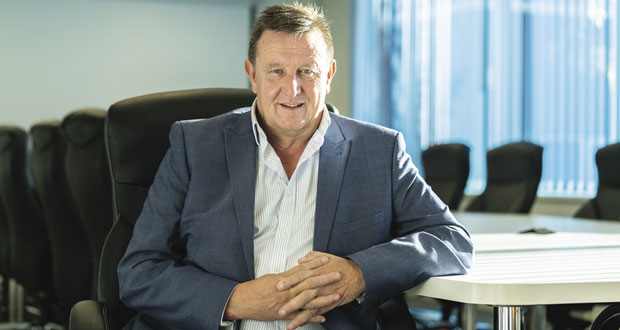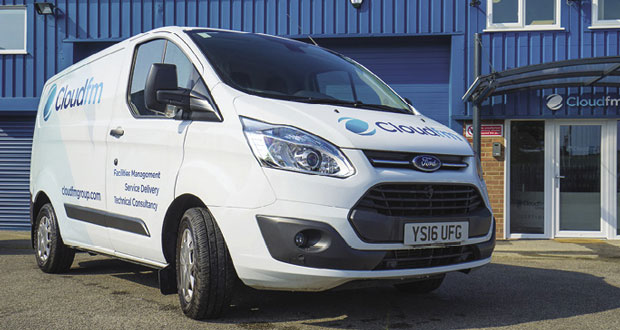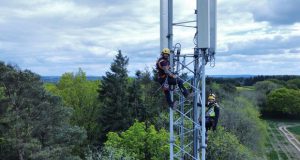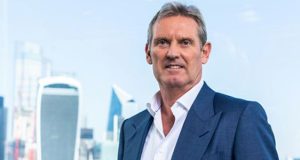FULL DISCLOSURE
The aim is to enable all stakeholders to see all the details, with nothing being hidden away. This, according to Dewing has helped create incredible levels of trust which filters both into the client relationship and throughout the supply chain.
“The corporates typically employ a property or facilities manager”, says Dewing, “so we employ FM account managers to work with that person. But we also have a finance team working directly with their finance team. The trick is to align the right people alongside, which means our C-suite will engage with the client C-suite, and we will adhere to these strict rules of engaging the right people with each other. If a potential client objects to this arrangement we’ll not work together.”
The intention has been for the business to grow very quickly and become an influencer, not necessarily the biggest but one which can do things better. Like the rest of the economy Cloudfm was hit badly by COVID, especially as the bulk of its client base was the hospitality sector. Again, in characteristic style, Dewing and the team didn’t follow the usual path.
He says: “When COVID came, it hit us like a train as 70 per cent of our clients were restaurants. We went from collecting six and half million pounds a month revenue down to £200,000. The restaurants panicked and started locking up the chequebooks so we had a choice, either start threatening legal action or do something different. We talked to every one of the CFOs, and said ‘let’s work together and be honest, we can handle bad news not no news’.
“Every client bar one engaged and spoke to us every week and what we said to our clients was ‘don’t just sit and do nothing, you need to drip feed us little and often and we’ll do the same with the supply chains’. Although our combined clients were only paying us a proportion of what they owed us every month we supported them and they in turn looked after us, discharged their debts and have said they’ll never forget what we did for them during COVID.”
ENERGY SOLUTION
Having weathered that storm Dewing and the team are looking forward to the future with another bold new concept. Working with Essex University and through a process of knowledge transfer Cloudfm employs a group of PHD researchers in areas such as human psychology, electrical engineering, IoT and data science. With them they’ve created a new cutting-edge technology (referred to currently as SmartBox), that can monitor the performance of assets including ovens, hot water systems, air quality, air-conditioners and refrigerators.
The tech works differently from IoT sensors in that instead of using sensors all around the building, the ‘box’ connects directly to an electrical distribution board. This enables it to analyse every bit of energy consumption from every one of the assets in a building to assess and predict crucial asset maintenance needs and reduce reactive visits.
Explains Dewing: “Everything that draws current creates its own harmonics, so no two bits of kit are the same. By using this system, within 24 hours, you can identify every asset in that building drawing current, and from that we can say ‘this is how it works when its working well’. Instead of using complicated graphics or dashboards it creates user-friendly insights on an app, where there is a visual representation of each asset that clearly indicates if an asset is beginning to fail. It’s that straightforward.”
The tech will also provide actionable insights to influence employees to be more environmentally friendly and operate assets more efficiently. For instance, cites Dewing, a restaurant manager may receive a notice that they haven’t turned off the air conditioning system for three nights and this has cost the organisation £37 and contributed to carbon waste. The following day the system reminds to switch the aircon off, and when he complies, sends a congratulations message to say well done.
“The key is in using tech such as AI to give us insight and share it,” says Dewing. “In the same way that social media makes a human feel good we can stimulate human behaviour by giving them insight and instant gratification. If you get people to act on that they’ll thrive which will help change the world. What we’re doing is getting the population to act on climate change and our technology is helping to create the insight to do so.
“Data is the new oil. In itself it’s got zero value, but where it does have value is the insight from the data.”
FUTURE PLANS
Alongside this exciting new piece of tech, Cloudfm has emerged from the pandemic with a clear-sighted aim to expand over the next five years. Restaurants, which were 90 per cent of the client base now account for around 40 per cent, which comprises commercial office, retail and education sectors.
Says Dewing: “COVID made us reimagine the business, and as an organisation we’ve become far stronger and profitable. We’re now going for growth, so we are forecasting a £200 million turnover by 2025; not to become the biggest but to show we can earn the profits that everyone desires by offering clients incredible value and gaining us more credibility to become a bigger influencer.”
While the FM sector has raised its profile during COVID, Dewing believes that FM as an influencer will go back to the way it was before if its people continue to behave in the same way.
“The reason we get on so well with our client base is because we engage with the C-suite and they see the value we bring in managing their portfolio in a strategic and advanced way. The FM sector needs to force that process and say, ‘if you want to do this as well as you can do it and reap the value you can achieve, we will all succeed’.”
Doing the opposite: A life, its lessons & building success https://amzn.to/3bmm96P






